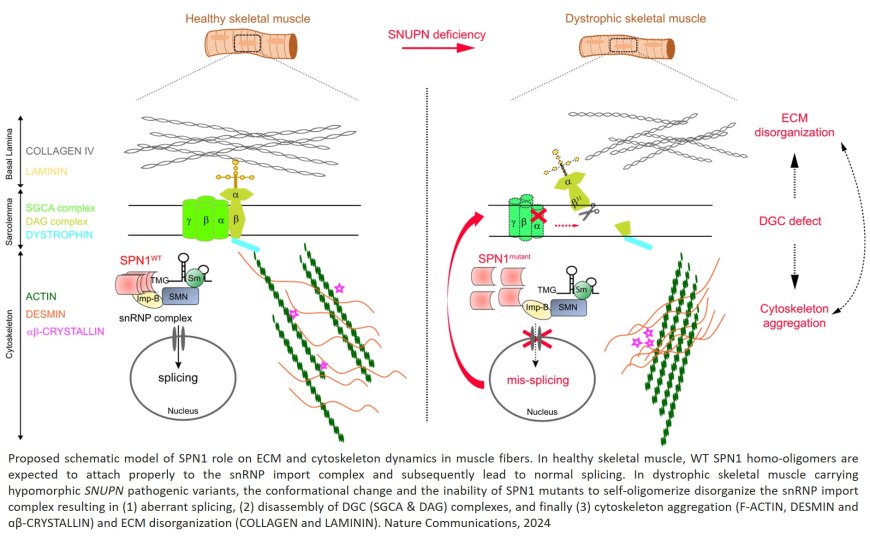SNUPN gene responsible for a new muscular disorder

A groundbreaking study, recently published in Nature Communications, sheds light on a newly identified subtype of muscular dystrophy, revealing an unsuspected role of SNUPN gene in muscle cell function.
The researchers embarked on a broad investigation to decipher the genetic underpinnings of a mysterious condition identified in a case evaluated at Koç University Hospital.
18 new patients recruited from 11 different countries with similar muscular dystrophy and neurological symptoms revealed a potentially wider prevalence of this condition than initially presumed. Through deep genetic and functional analyses on patient’s cells and tissues, the team identified alterations in the SNUPN as the causative factor for this debilitating disorder.
"This study represents a significant leap forward in our understanding and diagnosis of muscular dystrophies" remarked the author. "Our findings underscore for the first time the critical role of the Snurportin-1 protein encoded by the SNUPN gene in maintaining the structural integrity and function of muscle cells."
The illness shares similarities with SMA, not just in its impact on muscle tissue, but also in its progressive course and potential lethality. The Snurportin-1 protein involved in the newly identified disease interacts within the cell with the protein causing SMA.
Since SMA treatment is currently applied but still lacks full efficacy, ongoing research aims to provide evidence that may help SMA patients as well. Thanks to the animal model that has been generated in the zebrafish laboratory, researchers will continue to explore the role of this protein in muscle homeostasis and develop new treatment strategies.













